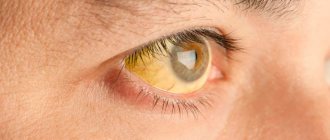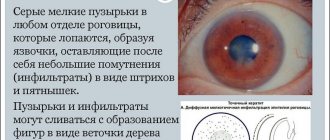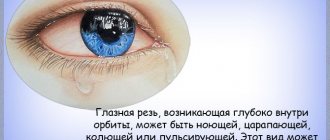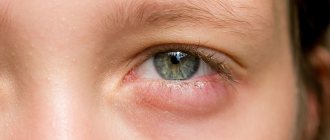Onions are vegetables that are included in the daily diet of a huge number of people. Without it, many hearty and tasty dishes lose their piquancy and spiciness. In addition to its excellent taste, onions are known for their antibacterial properties. It is not for nothing that the vegetable is used as various home remedies for colds, runny nose, and as a restorative and restorative component to strengthen the immune system.
The onion family includes more than 400 plant species, including both ornamental and edible varieties. But it is onions that cause tears, the juice of which has beneficial bactericidal properties, while also having a sharp, persistent pungent taste and aroma.
Causes of tears
The mechanics and chemistry of tear production when cutting an onion are simple. A knife, cutting the onion, violates its cellular integrity, as a result of which the volatile sulfur compounds contained in the cells soar into the air and are transferred to the mucous membrane of the eyes. In the process of contact with tear fluid, sulfur compounds are converted into weakly concentrated sulfuric acid, which, irritating the ocular mucous membrane, causes profuse lacrimation.
How to Avoid Tears When Peeling Onions
Few people like the feeling of burning, stinging in the eyes, and watery eyes when chopping an onion head. Therefore, new methods are constantly being invented to avoid such unpleasant manifestations. There are many ways to chop onions without crying.
The word lachrymator comes from the Latin lacrima , which literally translates to tear. And in order not to cry from onions, you need to avoid getting lachrimators on the mucous membranes of the eyes in every possible way.
The correct cutting method will help avoid tears
There are some general tips:
- Remove onions from your diet . The easiest way to protect yourself from onion tears is to avoid using this vegetable. But then many dishes will lose their taste, sharpness, and piquancy.
- Use “tearless” varieties . Chinese breeders have developed a special variety of this vegetable for cultivation, which does not cause tears when cutting it. However, it is significantly inferior in taste and aroma to its “tear-water” brother.
- Cut with a sharp, thin knife . It is best to cut the onion with a very sharp and thin knife. The fact is that a knife with a wide blade will come into contact with the entire surface of the vegetable, and more irritating substances will remain on it. The same thing happens when onions are cut with a dull knife. You have to make a lot more movements, the pulp wrinkles more and releases more irritating substances to the mucous membranes. The sharper the knife, the less the onion will wrinkle, it will be possible to cut it faster, which means that fewer volatile substances that cause tears will be released. A good tool is a ceramic knife, cutting with which reduces the amount of irritating sulfurous substances released by onions. It is highly not recommended to use serrated knives, as they damage the onion cell membrane more strongly, and much more lachrymators will be released.
- Stock up on a separate board . It is necessary to cut onions on a separate board intended only for this purpose and for chopping greens. When cutting very tough onions, you can first sprinkle the board with salt.
- Change the cutting method . Professional chefs have empirically come to the conclusion that lachrymators are unevenly distributed in the onion head. There are more of them closer to the root, so it is recommended to cut it last. To begin with, the head should be cut into halves from top to bottom. Then the half is placed cut side down and they begin to cut from the top, first into half rings, and then into cubes (or only half rings). This helps to save yourself from tears.
- Quick cutting will protect you from tearing, because lachrymators simply won’t have time to exert their irritating effect. But to do this you need to be able to cut vegetables at the speed of a professional chef. Therefore, this advice can work in the long term, once the skill of very fast cutting is acquired.
Cut onions in water or soak them
Before chopping onions, so that they don’t sting your eyes, experts recommend putting the vegetable in warm, salted water for half an hour. During this time, volatile substances become heavy and less mobile, and lose the ability to squeeze out tears.
You can try cutting the onion under water, but this is very inconvenient. Water will act as a barrier and solvent for lachrymators, but the vegetable itself will become slippery, so it is unlikely that it will be possible to cut it normally, and the danger of cutting yourself will increase several times. It's better not to experiment.
Soak a knife or onion in cold water
When cooled, all chemical reactions slow down. That is why experienced housewives advise putting the onion and knife in the freezer for 20 minutes before slicing.
Constantly rinsing the knife will prevent tearing
Using the same principle, it is recommended to wet the knife and onion with cool water. This is done continuously throughout the cutting process. But in addition to slowing down chemical reactions from exposure to cold, in this situation water acts as a solvent in which volatile sulfur compounds settle without having time to exert their irritating effect.
Note! When cutting an onion, you need to constantly rinse your hands in cool water.
At the same time, you should wet the handkerchief and constantly wipe your eyes with it. For these two reasons, it is recommended to cut vegetables next to the sink and cold water turned on.
Protect your eyes with glasses
Goggles or a swimming mask are barrier methods of protection against onion gas. It is necessary to use sports equipment, since goggles for surfing, swimming, snowboarding and skiing fit very tightly to the eyes, preventing lachrimators from penetrating the eye membranes.
Swimmer's goggles are a good way to protect your eyes from lachrymators.
Some people use regular glasses (sunglasses, for vision correction), and then complain that they still cry from onions. Such ophthalmic devices do not protect the eyes enough, so tearing begins. In addition to glasses, contact lenses protect your eyes well from caustic compounds. They fit tightly and do not allow sulfur compounds to pass through.
Cool the vegetable in the refrigerator or freezer
Pre-cooling the vegetable in the refrigerator, or even better, in the freezer, helps to cut onions without tears. With the same effect, the peeled onion is placed in cold water for several minutes. Cold reduces the irritating effect of sulfur compounds. Freezing in the refrigerator or anywhere else slows down chemical reactions; lachrymators are released at a much slower rate.
After cooling the onion, shredding does not cause tears
On a note! It is worth remembering that a very frozen onion is quite difficult to cut (it becomes very slippery and soft, it is difficult to hold it with your fingers). Meanwhile, the lachrymators in it do not evaporate after freezing, but only become slow. Therefore, the vegetable must be cut quickly so that the caustic compounds do not make you cry.
The best way not to cry from onions is not freezing, but light freezing.
Cut near a fire source
If onions make your eyes water, it is recommended to chop them near any source of open fire. Chemists claim that sulfurous fumes from onions oxidize when exposed to hot air and lose their irritating properties. Therefore, if you light a gas burner or candle near the cutting site, the fire will intercept sulfur compounds even before they reach the mucous membrane of the eyes. Also, a lit flame creates an upward flow of air, so volatile substances will immediately soar to the ceiling.
The candle burns caustic ethers
There is another opinion regarding wax (not paraffin) candles. If you place a wax candle near the place where you cut onions, the wax, when melted, releases substances that neutralize the irritating effect of sulfur. So the tears stop flowing.
Use a fan or hood
While cutting onions, it is better to constantly ventilate the room. You can cut vegetables under a hood or using a fan. The main thing is to create a flow of air between the bow and the person. This way you can drive away volatile sulfur compounds from your eyes and nose.
A kitchen hood will provide maximum comfort when chopping onions.
By chopping onions under a hood or using a fan, you can reduce the amount of caustic lachrymators in the air. At the same time, the onion smell will not permeate your clothes. And this is a very important bonus, since the onion aroma is absorbed into the fabric for a long time, and you can only get rid of it by washing the item with a powder with a strong smell. If there is no hood or fan, you should create a draft. But this option is fraught with a cold.
Advice! As soon as tears roll in while cutting onions, you can move to the opposite side of the kitchen, preferably to an open window, and expose your face to the fresh air and breeze. After a couple of minutes it will become easier and you can return to cutting work again.
Use a microwave
A microwave oven allows you to rid onions of the eye-corroding lachrymator without destroying their beneficial properties.
A few seconds in the microwave and onions won't make you cry!
All you need to do is peel the onion, cut off the bottom and top of no more than half a centimeter on each side and place in a shallow container. Place it in the microwave and turn it on to maximum heating mode for 20-30 seconds. Microwaves will evaporate the lachrymators that cause lacrimation, and the onion will be “neutralized.”
Place a glass of boiling water next to you
It helps to cut the onion without tears from the steam from a glass of boiling water placed next to the cutting board, which will dissolve the sulfur-containing essential substances in the air.
Steam from water will dissolve some of the lachrymators
As a result, they will not reach human eyes. Any vessel with boiling liquid has the same effect.
Using vinegar or a slice of lemon
Rubbing a cutting board and carving knife with lemon juice will briefly neutralize the tear-producing effects of eye irritants. Vinegar has a similar effect.
Treating the board with lemon will help prevent watery eyes.
The concentrated product must be diluted by half with water (you don’t need to do such manipulations with apple cider vinegar) and wipe the cutting board. It will stop the active release of lachrymators into the air. If this does not help, the proportion of vinegar can be increased. But you need to be careful, a large amount of preservative can worsen the taste of onions.
Use food processor
This device, as well as any chopper, blender, meat grinder with a closed box where the vegetable is placed, will save you from onion tears. Chopping onions using a food processor not only helps speed up the process. This kitchen unit is also a barrier method for protecting the eyes from the caustic secretions of onions.
Gadget for “tearless” onion chopping
To prevent anyone around you from crying from onions, you should use a food processor with a lid. If you simply put a vegetable in the chopping compartment and push it with a special device, then volatile compounds will still get into the air and irritate the mucous membranes of the nose and eyes. It is best to place the onion in the bowl of the food processor, close the lid and grind it to the desired consistency.
Important! The disadvantage of this technique is that it won’t work to cut onions, for example, into rings. But to chop it, you still have to peel the vegetable and cut it into pieces.
It's also not economical to run the food processor to chop just one or two onions. Therefore, this method only partially solves the problem and you need to look for more suitable ways to cut onions.
Tears from onions: benefits and harms
Sulfuric acid, which affects the ocular mucous membrane, has such a weak concentration that it is not possible to talk about any harmful effects upon short-term exposure to the organs of vision. Usually we are talking about the benefits and harms of the profuse lacrimation that it causes. It is worth noting that when people come into contact with onions, they do not at all want to cry and they, in fact, do not cry, although their eyes often hurt. They just shed a lot of tears.
Did you know? Libyans consume the most onions, consuming 33 kg per capita annually. In Russia, the average citizen eats 11 kg per year, in the UK - 9.3 kg, in France - 5.6 kg of this vegetable.
- The benefits of tears are:
- moisturizing the organs of vision;
- bactericidal properties, due to which pathogenic microflora in the mucous membrane is destroyed;
- delivery of nutrients to the cornea;
- creating a liquid film on the eye, a kind of water lens, thanks to which visual acuity improves.
In addition to short-term and transient unpleasant sensations caused by a burning sensation in the visual organs and profuse lacrimation, there are also unpleasant consequences from this process if it is repeated frequently. If a person systematically and for a long time is faced with cutting this vegetable, then the abundance and regularity of irritating substances entering the visual organs can lead to toxic and then chronic conjunctivitis and even corneal erosion.
Why does onion make us cry?
As strange as it may sound, onions do not want to be eaten. Therefore, it protects itself as best it can, spraying special toxic substances called lachrymators along with the juice. Trying to chop onions for salad or borscht, we are essentially experiencing a small local war with tear gas.
The fact is that in the process of evolution, all plants acquire the abilities they need to survive. Including the ability to scare away enemies who are constantly trying to crunch on the juicy greens. Someone is trying to disguise themselves as an inedible object - for example, a stone, as Lithops does. Someone signals with their smell: don’t eat me, I’m tasteless (for example, wormwood). And someone else, like an onion, when it is cut or bitten, attacks the enemy with toxic substances, trying to cause unpleasant sensations.
What chemical element in onions causes tears to appear?
As the American chemist E. Block established in the course of serious research work to find out what substance and what acid causes tears to flow from the eyes, the lachrymatory substance in onions is the substance lachrymator. This substance is released into the atmosphere when the onion is cut, accompanied by a violation of the integrity of its cells.
Important! Under no circumstances should you rub your eyes with your fingers in such a situation, as this will only increase the contact of the sulfuric acid with the cornea and worsen the burning sensation.
Once in the mucous membrane of the visual organ, the lachrymator combines with the liquid located there and forms sulfuric acid, which irritates the eye, causing profuse tearing. The chemical element in the form of sulfur, which is the main culprit in the unpleasant events that occur, is found in the amount of several atoms in the amino acids present in onion cells. When cells are destroyed, amino acids begin to actively combine with enzymes present in the same cells and form this very lachrymator.
What to do if tears flow from onions
If a person has not taken preventive measures to prevent irritating onion substances from getting into the eyes, which will be discussed below, then he should:
- immediately blot your eyes with a dry and clean napkin or cloth;
- rinse eyes with warm water;
- go outside for a quarter of an hour;
- Apply moisturizing drops to your eyes.
Important! If the fear of burning in the eyes and the flow of tears from them and the complex preventive measures taken in connection with this exceed the real danger that arises when cutting onions, then you should not fuss. Moral costs can be more dangerous than a short-term burning sensation in the visual organs.










